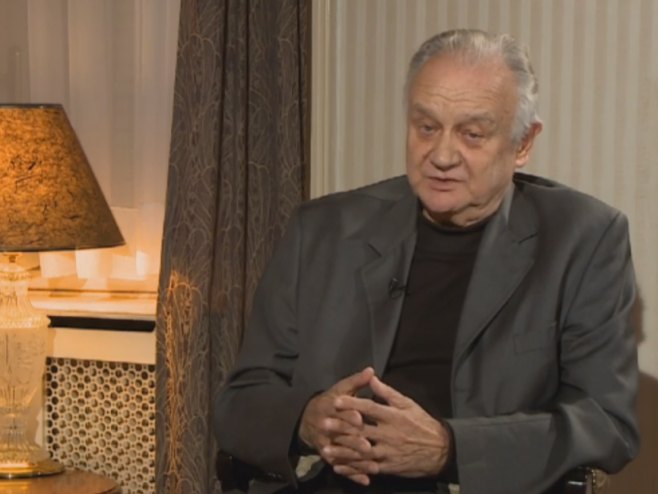The former wartime leader of the Muslims, Alija Izetbegović, rejected four peace plans to end the war in Bosnia and Herzegovina (BiH) despite initially agreeing to them. His ideological successors now intend to undermine another – the Dayton Peace Agreement – with the help of Western partners.
Former Serb diplomat Vladislav Jovanović said this to “Glas Srpske,” reflecting on today’s date, July 30, 1993, when the leaders of Serbs, Muslims, and Croats initially reached an agreement during peace negotiations in Geneva. According to this agreement, BiH would consist of three ethnic republics, but Izetbegović abruptly rejected it afterward, prolonging the war in BiH for another two years.
According to Jovanović, it is evident that for the past 30 years, neither the former Muslim, now Bosniak leaders, nor their agreements, signed documents, and treaties have meant anything sacred. This is also evident today when it comes to the Dayton Agreement, which, he emphasized, is being dismantled in every possible way.
“They have always been interested in only one thing, a unitary and mono-national state of BiH. The fact that they rejected four proposed peace plans shows how irrational their thinking was. The Bosniak political elite still believe they can achieve more than what was granted to them in Dayton, which is in line with Alija Izetbegović’s dream. They can’t seem to break out of that mindset,” Jovanović said.
He recalls that Izetbegović had a rather loose political approach to all peace negotiations during the 1990s, as he always counted on the help of America, which at that time had an interest in siding with the Muslims, sabotaging every attempt at reaching peace. Washington, he added, wanted to gain certain sympathies in the Islamic world, consciously extending the war in BiH with the help of the then Muslim leaders.
“Serbs and Serbia were collateral damage of that U.S. foreign policy. At one point, they decided that the war should be stopped and did so, believing that over time the Republika Srpska would integrate into BiH. Now they are returning to the Balkans again, due to similar situations and events in the Middle East. They need a country inhabited by Muslims, which they will support against non-Muslims. Just like in the 1990s, they have chosen BiH. In this way, as before, they are trying to atone for the harm they have done to the Islamic world. The Bosniak elites are trying to use this, not caring about the fate of the other two peoples. However, this is not the path that leads BiH to prosperity and peace,” Jovanović stated.
Regarding the Geneva agreement, Lord David Owen and Thorvald Stoltenberg proposed the internal division of the country on a federal basis in 1993. The Muslim side offered the Serbs the option to hold a referendum after five years and leave BiH if they wished.
According to this peace plan, the Union of Republics of BiH would consist of three constituent republics, each representing one of the constituent peoples. As agreed, the executive power would be headed by a three-member presidency, with the chair rotating every four months. The presidency’s decisions would be made by consensus.
Alongside the presidency, the executive power would be held by the Council of Ministers. The legislative body would be a parliament composed of 120 deputies, with one-third elected from each republic.
The union would have a supreme court, a constitutional court, and a human rights court. Each constituent republic would adopt its constitution, with the presumption of powers in favor of the republics, as outlined in the Dayton Peace Agreement.
Each republic would organize and manage its uniformed forces, with a proportionately balanced national composition.
Serbs as collateral of U.S. foreign policy
Interestingly, many provisions of this plan were included in the Dayton Agreement two years later, but with two entities being signed in Dayton.
Before this, Izetbegović had rejected three other peace agreements. Before the outbreak of the war, he rejected a previously agreed plan for a truncated Yugoslavia, which would consist of four republics – BiH (without any internal borders), Serbia, Montenegro, and the then Macedonia.
This plan was accepted by Muslim intellectuals and politicians Adil Zulfikarpašić and Muhamed Filipović with initial approval from the SDA, only for Izetbegović to later reject it.
In 1992, the SDA and Izetbegović accepted and then rejected the so-called Lisbon paper on three republics and recognized BiH’s external borders. Izetbegović did the same with the Vance-Owen plan for ten cantons, which was also rejected by the Serb side.
Source: Glas Srpske









